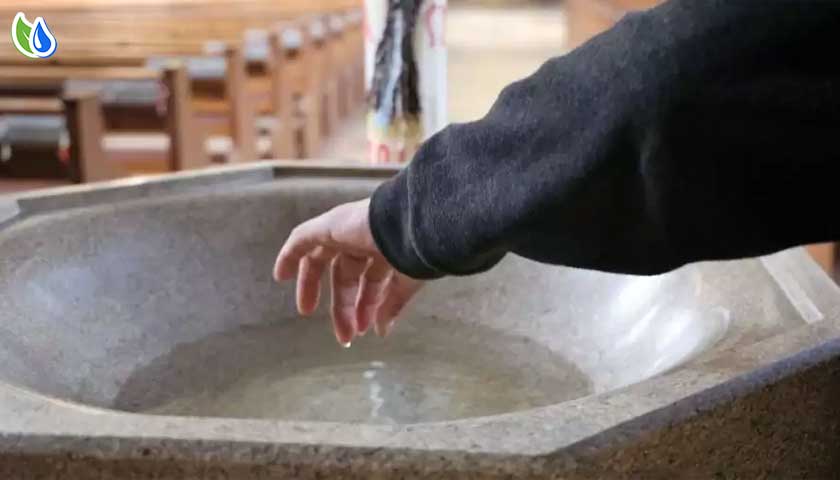
Drinking Holy Water: Exploring the Good and Considerations
Holy water holds significant religious and spiritual importance in various cultures and faiths. It is water that has been blessed or sanctified by religious authorities and is used in rituals, blessings, and spiritual practices. While holy water is primarily intended for symbolic and spiritual purposes, the question of whether drinking holy water is beneficial or potentially harmful raises various perspectives and considerations.
The Symbolism of Holy Water
In many religious traditions, holy water represents purity, cleansing, and spiritual protection. It is used as a symbol of God’s grace and blessings, and its sacred nature is believed to have a positive influence on those who interact with it. The act of using holy water in rituals or blessings is intended to invoke divine favor, spiritual renewal, and protection from evil forces.
There are both good and bad things to consider when drinking holy water.
The Good Aspects of Drinking Holy Water
– Some people believe that drinking holy water can help to protect them from evil spirits.
– Others believe that it can help to cleanse the soul and bring about spiritual growth.
– Still others believe that it can simply make them feel more connected to God.
Spiritual Connection: For believers, drinking holy water can deepen their sense of spiritual connection and devotion to their faith. It can be a personal and symbolic act of seeking divine guidance, healing, or blessings.
Sense of Comfort and Hope: For individuals facing challenges or hardships, consuming holy water can provide a sense of comfort and hope. Believers may find solace and reassurance in the belief that the holy water carries sacred properties that can positively impact their lives.
Cultural and Traditional Significance: In some cultures, drinking holy water from specific sources is a longstanding tradition, and it holds deep cultural and historical significance. It may be an essential part of religious festivals and ceremonies, fostering a sense of community and unity among believers.
Considerations and Potential Risks
– There is no scientific evidence to support any of the claims about the spiritual benefits of drinking holy water.
– In fact, some people believe that drinking holy water can be harmful, as it may contain bacteria or other contaminants.
– Additionally, some people find the taste of holy water to be unpleasant.
Hygiene and Contamination: In some religious settings, holy water is exposed to multiple people, and the water itself may not be subject to regular purification or sterilization. This raises concerns about potential contamination and hygiene issues.
Health Risks: In certain situations, drinking water from religious sites or sources might not meet safety standards for potable water. Water from natural sources may contain harmful bacteria or contaminants that could lead to health risks.
Belief vs. Scientific Evidence: While the spiritual significance of holy water is deeply ingrained in faith and culture, scientific evidence supporting its tangible health benefits is limited. The efficacy of holy water as a curative or preventive agent is a matter of individual belief.
Respecting Religious Beliefs: For those who do not share the same religious beliefs, drinking holy water may not hold the same spiritual significance or positive associations. It is crucial to respect diverse religious perspectives and not impose one’s beliefs on others.
The act of drinking holy water holds different meanings and implications across various religious and cultural contexts. For believers, it can serve as a powerful symbol of faith, spiritual connection, and hope. However, from a scientific and health perspective, it is essential to consider potential risks associated with the source and handling of holy water.
Ultimately, the decision to drink holy water is a deeply personal one, shaped by individual beliefs, traditions, and values. Regardless of one’s perspective, it is essential to approach the topic with respect and understanding, recognizing the diverse ways in which holy water holds spiritual significance for different communities around the world.
Here are some additional things to keep in mind:
– The Catholic Church teaches that holy water is a sacramental, which means that it is a physical object that can be used to confer spiritual grace. However, the Church does not teach that drinking holy water is necessary for salvation.
– Some people believe that drinking holy water can help to protect them from evil spirits. However, there is no scientific evidence to support this claim.
– If you are considering drinking holy water, it is important to do so with reverence. Holy water is a sacred object, and it should be treated with respect.





In Mexican Catholic traditions, we often use holy water for blessings and protection. While I’ve never considered drinking it, the notion brings forth interesting discussions within our community. Some view it as a powerful act of faith, while others question the potential health implications. It’s a delicate balance between tradition, spirituality, and modern perspectives.
As someone who identifies as agnostic, the idea of drinking holy water is intriguing yet perplexing to me. I appreciate the cultural and spiritual significance it holds for many, but personally, I find it challenging to ascribe any tangible benefits to the act. It seems more like a symbolic ritual than a practical necessity. I respect diverse beliefs but prefer exploring spirituality in a more introspective manner.
In Hinduism, we have a tradition of consuming “Charanamrita,” which is water that has washed the deity’s feet during worship. While not exactly holy water, the concept is similar. I see it as a way to connect with the divine and receive blessings. However, I think it’s crucial to approach such practices with respect and understanding, ensuring they align with one’s own beliefs and values.
Growing up in a Catholic household, I was familiar with holy water, but the idea of drinking it seemed unusual. Recently, I attended a religious event where drinking holy water was encouraged. I approached it with an open mind, and while it didn’t have any miraculous effects on my well-being, the act itself felt spiritually meaningful. It’s more about the intention and belief than any physical benefits.
In Islam, we also have a concept of blessed water known as “Zamzam.” While it’s not exactly the same as holy water in other traditions, the idea of consuming blessed water for spiritual blessings is similar. Personally, I find solace in drinking Zamzam water and believe it brings blessings to my life. It’s not about tangible benefits; it’s about faith and devotion.
As a devout Christian, I’ve been drinking holy water during religious ceremonies for years. It’s a deeply personal and spiritual experience for me. I believe that consuming holy water enhances my connection with God and symbolizes purification. The thought of potential benefits or harms never crossed my mind, as my faith and trust in the sacred nature of the water override any doubts.